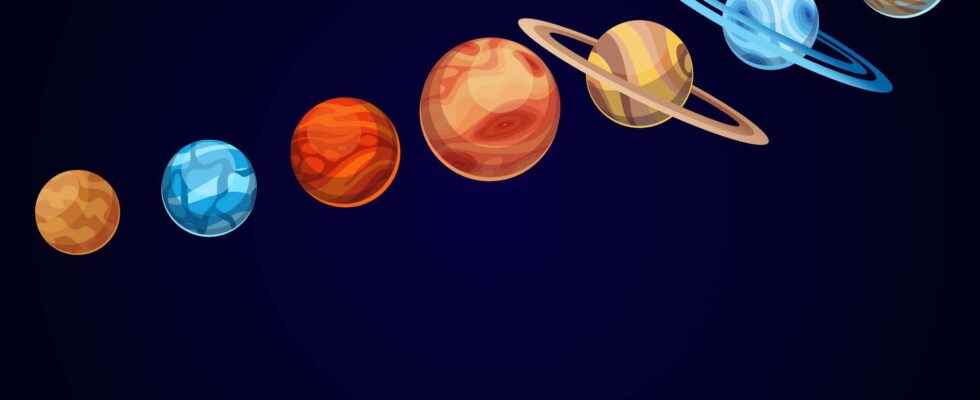We are 41 million kilometers from Venus, 78 million kilometers from Mars and 4.3 billion kilometers from Neptune. How long did the different space probes take to reach the different planets? Answer with this infographic.
The probe Parker Solar Probe, launched on August 12, 2018, is the fastest human-made space object. It travels at 393,000 km / h, enough to cover a Paris-Tokyo in 1 min 30 s. The speed probes is however far from constant: it is notably accelerated during the passage above the planets by taking advantage of their gravitational assistance. Space probes must also escape other gravitational disturbances, especially when approaching the Sun. So much so that moreenergy to orbit Mercury only to reach Pluto ! The duration travel also depends on the distance, which is larger or smaller for planets with an elliptical orbit. Here are the records set so far and the theoretical duration of a travel at the speed of light (if we are one day able to reach it …).
Mercury
- Average distance from Earth : 91.69 million kilometers (Mkm)
- Space probe : BepiCombo
- Release date : October 19, 2018
- Arrival date (insertion into orbit): December 5, 2025 (forecast)
- Travel time : 2,604 days, i.e. 7 years, 1 month and 17 days (forecast)
- Theoretical duration of the trip (speed of light): 5 min 6 s
Venus
- Average distance from Earth : 41.40 Mkm
- Space probe : Venus Express
- Release date : November 9, 2005
- Arrival date (insertion into orbit): April 11, 2006
- Travel time : 153 days, i.e. 5 months and 2 days
- Theoretical duration of the trip (speed of light): 2 min 18 s
March
- Average distance from Earth : 78.34 Mkm
- Space probe : InSight
- Release date : May 5, 2018
- Arrival date (landing): November 26, 2018
- Travel time : 205 days, i.e. 6 months and 21 days
- Theoretical duration of the trip (speed of light): 4 min 22 s
Jupiter
- Average distance from Earth : 628.73 Mkm
- Space probe : Juno
- Release date : August 5, 2011
- Arrival date (put into orbit): July 5, 2016
- Travel time : 1,796 days, i.e. 4 years and 11 months
- Theoretical duration of the trip (speed of light): 34 min 57 s
Saturn
- Average distance from Earth : 1.275 Mkm
- Space probe : Cassini-Huygens
- Release date : October 15, 1997
- Arrival date (put into orbit): 1er July 2004
- Travel time : 2,451 days, i.e. 6 years, 8 months and 17 days
- Theoretical duration of the trip (speed of light): 1 h 10 min 53 s
Uranus
- Average distance from Earth : 2.723.95 Mkm
- Space probe : Voyager 2
- Release date : August 20, 1977
- Arrival date (flyover): January 24, 1986
- Travel time : 3,079 days, i.e. 8 years, 5 months and 4 days
- Theoretical duration of the trip (speed of light): 2 h 31 min 26 s
Neptune
- Average distance from Earth : 4.351.40 Mkm
- Space probe : Voyager 2
- Release date : August 20, 1977
- Arrival date (flyby): August 25, 1989
- Travel time : 4,388 days, i.e. 12 years and 5 days
- Theoretical duration of the trip (speed of light): 4 h 1 min 55 s
Interested in what you just read?
.
fs4
